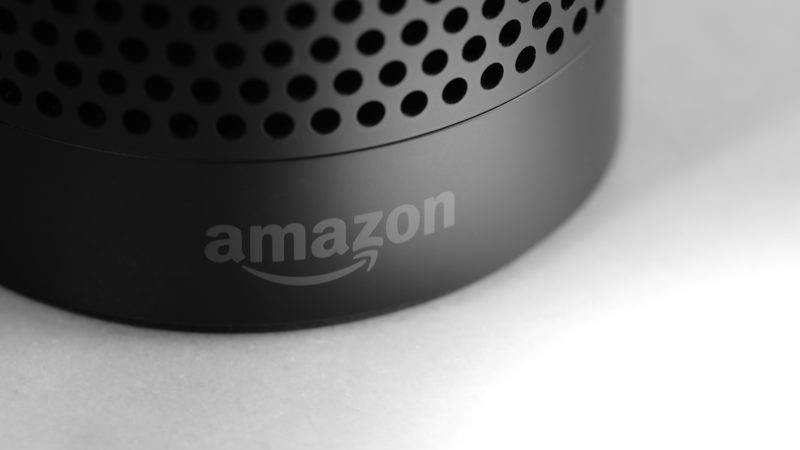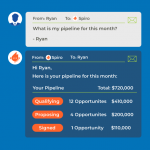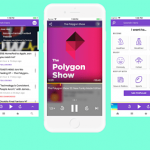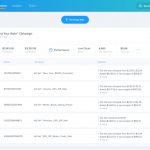What is the future of artificial intelligence?
Marketers say that 2018 will see deeper personalization, innovations in voice AI and an enhanced view of the customer journey.

In 2017, the predictive ability of artificial intelligence (AI) powered many new tools and platforms. So what does 2018 have in store for AI? I asked some marketers to find out.
Speak up, Alexa
Gregg Johnson, CEO of Invoca, a call tracking and analytics service, says that 2018 will be “the year the voice trend becomes undeniable.”
“As people increasingly trade typing for talking, we’ll see more companies invest in developing for voice interfaces,” Johnson said. “Most focus on Amazon’s Alexa due to its head start in the consumer marketplace. And like the first iPhone opened up new possibilities for mobile beyond anyone’s imagination, voice platforms present a similar opportunity for brands. I expect marketers will be looking to incorporate voice into their overall customer experience, and by the end of next year, all of the major marketing technology platforms to the likes of Adobe and Salesforce will offer voice notifications alongside email, mobile push, and SMS to round out their omnichannel capabilities.”
Harsh Jawharkar, VP of marketing at customer engagement platform Narvar, says that the advent of voice will require a refocus on customer service.
“This year, brands like Best Buy and Walmart partnered with Google Home and Amazon Alexa, while consumer adoption of voice assistants rose,” Jawharkar said. “In 2018, as more people use voice-activated devices, we’ll see the more successful marketers thinking more like customer care professionals. These marketers will earn consumer trust by leveraging the strengths of voice devices to address post-purchase pain points and needs, rather than blindly using voice as yet another channel for promotions.”

The base of Amazon Echo, the smart speaker home of voice agent Alexa
And Robert Weideman, executive vice president and general manager of the enterprise division of software company Nuance Communications, says that voice will also take a more important role on the back end.
“Your voice will be your password,” Weideman said, explaining that “2017 was a record year for hacks of personal customer details.”
“These breaches give fraudsters access to our identities, including the answers to those annoying security questions. One thing the fraudsters can’t do much with? Voice data. And that is why banks and telcos are increasingly replacing security questions with biometrics. With a few words of speech, voice biometrics can confirm you are who you say you are at accuracy and security levels better than pins, passwords and security questions. And it knows how to detect recordings from real, live speech — rendering the data useless to fraudsters in the case of a breach,” Weideman said.
This time it’s personal. Really personal.
Customers are getting increasingly used to personalized marketing, but the proliferation of data hacks and breaches can break down their trust. In 2018, we’re going to see a lot of companies putting customer service back into the sales funnel, sometimes even adding humans back into the mix the way LivePerson has done.
“Consumers and marketers will more fully leverage machine learning than ever before,” says Omer Artun, CEO of customer data platform AgilOne. “For marketers, machine learning promises a scale of authentic personalization that was never possible before.”
Artun said that “2018 will be the year marketers tap into this technology to finally deliver on the ‘1:1’ promise that was hyped many years ago. For consumers, machine learning will enable them to more easily express consumer preferences and engage on a personal level with very large brands. The ‘1:1’ promise works both ways, and both brands and consumers will benefit from the role of machine learning in 2018.”
Brett Caine, CEO of Urban Airship, a mobile engagement platform, says, “marketing needs a mind shift.”
“Customers are increasingly impatient and tone deaf to broad-based promotions that don’t speak to their interests or behaviors,” Caine says. “One-to-one marketing will rapidly become one-to-moment marketing, where real-time data, automation and AI enable responding to and anticipating customer interactions to enhance their experience. The pressure is on brands to earn this level of customer intimacy as first-party data becomes critical due to increasing privacy/data regulations, ad blocking and AI/machine learning advancements.”
Insight will be in overdrive
If you think brands were nosy this year, just wait. We are going to see even more personalization throughout the entire customer journey, at shockingly appropriate touch points. Think an upsell for a massage while you’re just coming off a particularly difficult run.
Mark Smith, president of Kitewheel, a customer journey tool, says that the view of the customer’s path will become longer and more complex.
“In 2017, the average customer journey length for customers that have already been acquired reached an average of 20 months, versus 10 for an acquisition journey,” Smith said. “This means that while a customer can be won or lost quickly, retaining and growing a customer relationship takes time and cross-channel effort. With the rise of new technologies and channels, 2018 will see even more complex journeys and longer journey times.”
Smith also noted that the type of customer experience would change, augmented by the proliferation of devices and IoT.
“Customer experience will shift from the problem-solving crises mode seen over the past 10 years to a proactive process. There’s already growth here, which will continue into 2018. Kitewheel’s data shows that customer interactions in the growth stage — where companies focus on growing and deriving more value from customers — grew 400 percent in 2016. Seventy-five percent of these growth interactions dealt with customer service, customer satisfaction or customer loyalty meaning that companies are already starting to recognize the need to shift CX strategy.”
“IoT and connected devices will cause the number of marketing interactions to explode.
IoT emerged in 2017 as a serious contender along marketing channels — with almost 30 percent of customer interactions taking place on the platform using this channel. As IoT becomes more ingrained in daily life, marketers will undoubtedly tap this technology even more to interact with customers. Email also saw a surge in 2017, growing 12x over the previous year in terms of total interactions. What has brought this channel back into the spotlight and will keep it there in 2018? Its abilities in personalization and also the fact that millennials favor this channel,” Smith said.
Collaborative solutions will lead the way
Tal Kedar, CTO of Optimove, a relationship marketing hub, says that marketing teams will struggle to make sense of the hype and form new collaborations between teams.
“The hype around AI will drive vendors and internal data science teams to try and apply recent advancements towards marketing optimization solutions — especially recent approaches in ‘deep learning,’ for example, using Generative Adversarial Networks (GAN), or the various emerging architectures of Recurrent Neural Networks (RNN), to name a few,” Kedar said. “Such strategic initiatives will challenge marketing departments to recruit more sophisticated AI talent and oversee complicated R&D processes, traditionally not managed by CMOs, and many will need to seek out more advanced expertise to select between technology vendors and their sometimes vague, fluffy marketing collateral.”

“Many marketing departments will fail to successfully harness those new AI approaches due to significant underestimation of the expertise and time required. Some CMOs will look to bring such initiatives into the marketing organization, instead of collaborating with a BI/analytics/data science group, increasing the demand for statisticians and AI experts with significant marketing background at the junior to mid-management levels,” Kedar said.
There might be challenges, but AI will flourish in 2018
No one can really predict the future, but I’d bet all my pennies that 2018 will usher in a lot of excitement for the space. Upcoming data privacy laws such as GDPR may throw some wrinkles into the process, but the marketers I talked to see a future powered by AI.
Marketing Land – Internet Marketing News, Strategies & Tips
(58)














